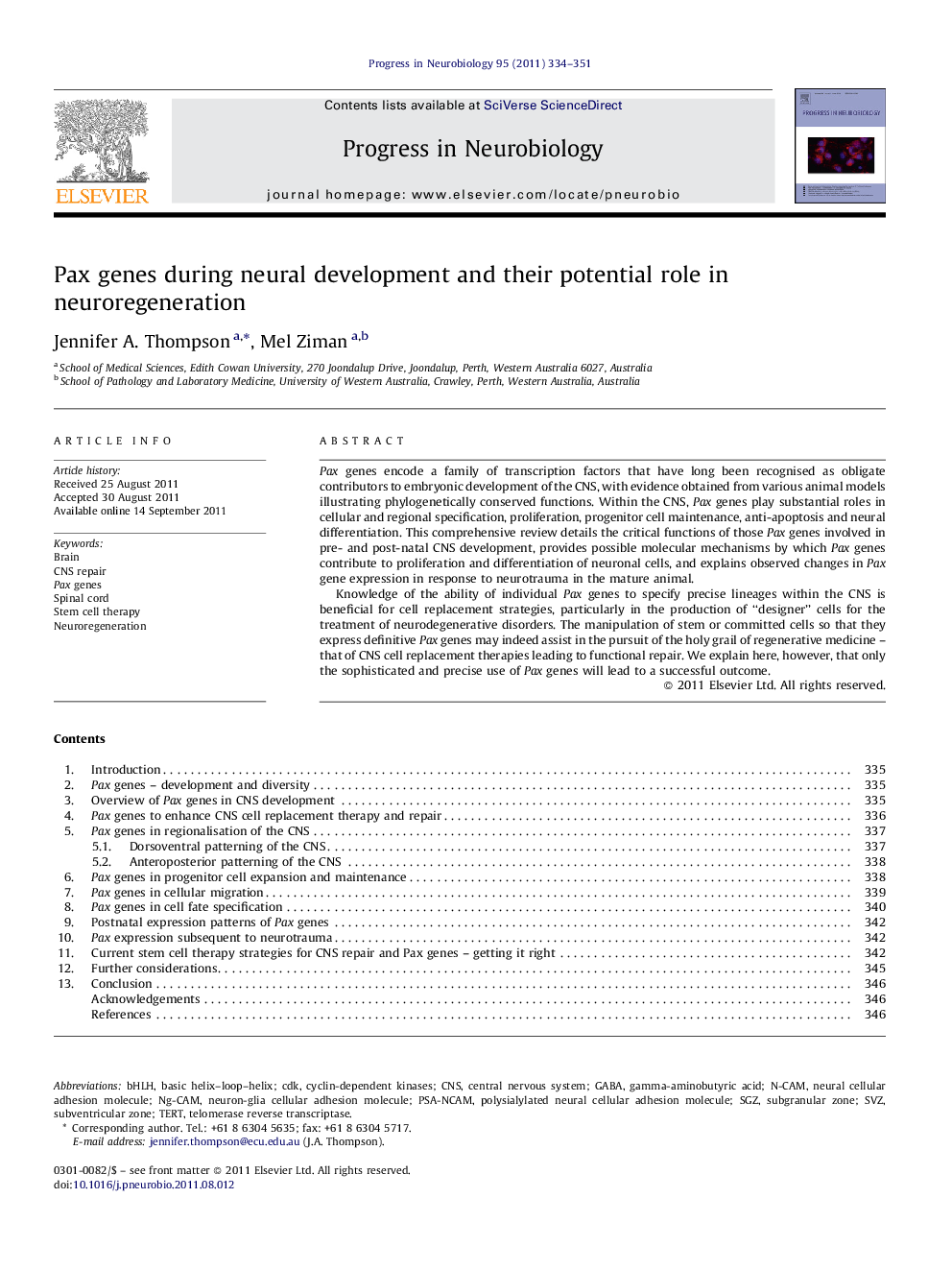| Article ID | Journal | Published Year | Pages | File Type |
|---|---|---|---|---|
| 4353588 | Progress in Neurobiology | 2011 | 18 Pages |
Pax genes encode a family of transcription factors that have long been recognised as obligate contributors to embryonic development of the CNS, with evidence obtained from various animal models illustrating phylogenetically conserved functions. Within the CNS, Pax genes play substantial roles in cellular and regional specification, proliferation, progenitor cell maintenance, anti-apoptosis and neural differentiation. This comprehensive review details the critical functions of those Pax genes involved in pre- and post-natal CNS development, provides possible molecular mechanisms by which Pax genes contribute to proliferation and differentiation of neuronal cells, and explains observed changes in Pax gene expression in response to neurotrauma in the mature animal.Knowledge of the ability of individual Pax genes to specify precise lineages within the CNS is beneficial for cell replacement strategies, particularly in the production of “designer” cells for the treatment of neurodegenerative disorders. The manipulation of stem or committed cells so that they express definitive Pax genes may indeed assist in the pursuit of the holy grail of regenerative medicine – that of CNS cell replacement therapies leading to functional repair. We explain here, however, that only the sophisticated and precise use of Pax genes will lead to a successful outcome.
► Pax genes play substantial roles in CNS development. ► Pax genes regulate differentiation of specific neural cell types. ► Stem cell manipulation using Pax genes may enhance stem cell transplant therapies. ► Only sophisticated and precise use of Pax genes will lead to successful strategies. ► Further investigation of Pax function is needed to maximise regenerative potential.
